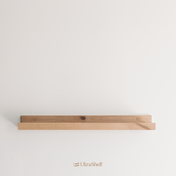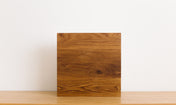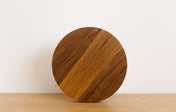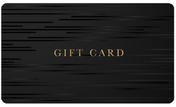Installing floating shelves in your home is a great way to enhance your space and make it personal but sometimes people worry about floating shelves damaging their walls.
Do Floating Shelves Damage Your Walls This is a very common question that we get asked a lot and we want to set the record straight. Our floating shelves are sturdy and durable and if installed correctly, they will not damage your walls.
We want to walk you through what you need to know about installing and removing your floating shelves so that you can feel confident that they will not ruin your walls. We will give you a list of tools you will need, and walk you step by step through the process of installing your shelves properly so you have beautiful, sturdy shelves.

Understanding Your Home’s Structure
The interior of your home’s walls have three main components that you need to be aware of when installing floating shelves.
First are the studs. Studs are the wooden beams within the walls that hold the frame of your house up. Structurally, these wood beams are very sturdy and can hold a lot of weight (these will be important later on!)
Second is the insulation in between your beams. This is what keeps your house warm or cool. This is basically yellow fluff that has no stability, but is very important for your home. But it doesn't really matter for your shelving.
Third is the drywall. This is what you see as the smooth finish on the interior of your home and what you would label as the wall. This material isn’t the most durable, but it holds up well for its intended job of looking like a smooth finish and what you paint to look beautiful.
How to Hang a Shelf so you Don't Damage your Walls
The brackets we make for our floating shelves are intended to be hidden and not damage your wall, but hanging them correctly will ensure your walls are not damaged.
What you will need:
Stud Finder - we recommend investing in a good one like this one from Home Depot
Leveler -This is one tool you do not want to go cheap on. A good leveler will make sure your floating shelves are not crooked on the wall and will prevent you from drilling more holes in your walls than needed.
Tape Measure - Our favorite one can be used with only one person
When you are hanging your shelving, you want to measure where your studs (wooden beams hidden within your walls) are with your stud finder. These are what you want to drill into to hang a sturdy shelf. If you are not sure how to find your studs, read our blog about this.
If you drill into your wall anywhere without finding where your studs are, you might be drilling into drywall, in which case, your shelves will not hold up and it will likely damage your wall.
You need that solid, sturdy beam in your wall to hold up the weight of your shelf and whatever you put on it.
Once you have found the studs in the placement you want your shelves on your wall, you will want to measure how high you want them.
How high they are will depend on where you are placing them and their intended use.
Then you will want to make sure your marking for the drilling holes line up with the brackets and are level so your shelf is level. We always recommend measuring and leaving twice so there are no mistakes!
Once you have all of this ready to go, you can drill a hole into the stud and then attach your brackets and shelf!

What Happens if I Want to Remove My Shelf?
Removing your shelf from the wall without damage is no problem.
Remove the shelf from the bracket and use your drill or a hand screwdriver to unscrew your bracket.
Once the bracket has been removed, you will have a couple of screw holes in your drywall. These are extremely easy to fix.
What you will need:
Spackling Putty - This pink putty is the real hero here
Sandpaper - use a finer grit
Paint - make sure this matches your wall paint color unless you want to pain the whole wall
Once you have collected your supplies, take the putty knife and scoop out a little blob and smear it over the hole, pushing the putty into the hole. You want to smooth it over, then add a little more, making sure it is all filled up.
Let the putty dry for as long as the directions on the container say. Then you will sand the area so it is smooth and the texture matches your wall. Then you can paint over the area.
You will never know there were floating shelves hanging on your walls.
Your floating shelves should never damage your walls. You should be able to hang them, move them or adjust them as needed without any damage to your home or walls. If you want to permanently remove them from an area, patching up a little screw hole is all you should need to do!









